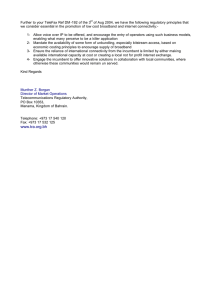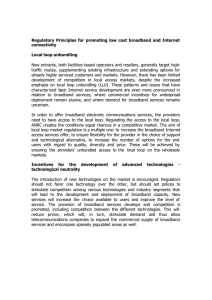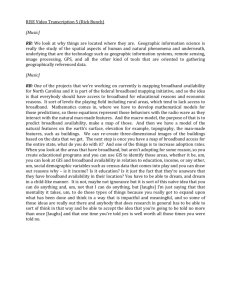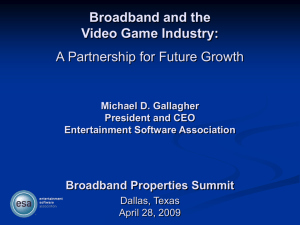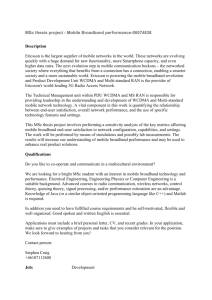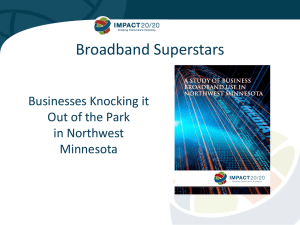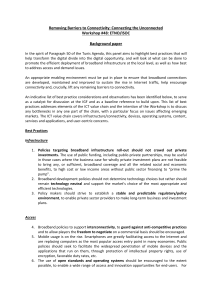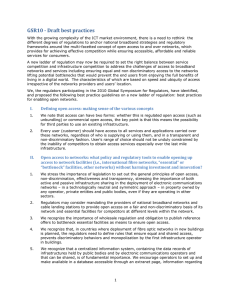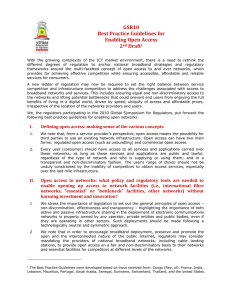CANTOPresentation
advertisement
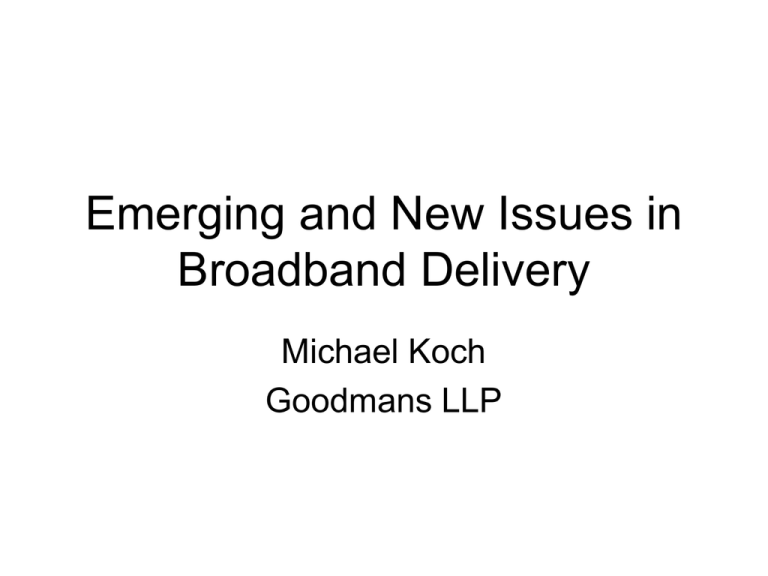
Emerging and New Issues in Broadband Delivery Michael Koch Goodmans LLP Funding Broadband • Government funding – Strong recognition of broadband as economic enabler even in developed economies – US/Canada - public works projects as part of economic stimulus arising from 2009 financial crisis – Digital divide - geographic (underserved areas) or economic (disenfranchisement) Regulatory Structures • Universal access – Canadian modest “expectation” of 5 Mbps downstream, 1 Mbps upstream, reliance on market forces and public funding for ppp – Access to and acceleration of greater spectrum resources for broadband, e.g. • Canada - 700 MHz and 2500 MHz being released • US re-purposing of Mobile Satellite Spectrum in 2 GHz band Competition • In countries where dual infrastructure of telcos and cable such as North America, this became a “natural duopoly”; more recognition of unbundling in UK and on the continent • Debate whether network sharing with additional providers creates incentives for innovation and investment or a chill for greater investment needed for broadband Competition (cont’d) • In US, tendency not to require sharing or unbundling of next generation assets, e.g. fibre-to-the-home projects • In Canada, a more pragmatic approach: – recognizes competition drives investment and innovation – looks at effects in downstream market of unbundling or not – however, recognition of increased investment in fibre • however very small uptake ~ 6% (very vocal group, though) Net Neutrality and UBB • Obvious early attempts at throttling competing Internet applications addressed by regulators (e.g. Comcast and P2P) • Still an emerging issue in UK (more competition?) • Legal issue in US (surprise!) • In Canada, recognition that carriers must have the ability to address capacity issues • Internet Traffic Management Practices: “good” ITMPS - economic measures; “bad” ITMPS technological measures UBB • Increased focus on use of Internet traffic management practices and their impact on competition • In Canada, firestorm ensued when Bell Canada tried to apply UBB to competitors’ customers – Would have required competitors to charge same usage-based caps – Bell argued broadband a utility like water – Proceeding focused on drivers of capacity Convergence with broadcasting • IPTV on telcos’ platforms providing robust competition to cablecos • “over the top”, I.e., programming delivered independently of network operators challenging regulatory paradigm of support for national broadcasting policy, just as VoIP did for telecoms “Consumer” issues • While not an issue in broadband delivery per se, consumer issues such as privacy, copyright and security are taking over from economic regulation issues • As more and more services are delivered over broadband, regulators find themselves under increased public and political pressure to address these issues
